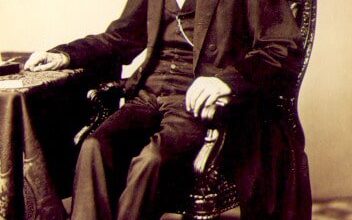
Marabda, Battle of (1625)
Decisive battle between the Persian and Georgian armies on 1 July 1625. In response to Persian encroachments on eastern Georgia, the Great Mouravi, Giorgi Saakadze, raised a rebellion in Kartli in the spring of 1625 and annihilated a Persian army in the battle of Martkopi on 25 March. He went on to capture Tbilisi and campaign in Kakheti, Ganja-Karabagh and Akhaltsikhe. King Teimuraz of Kakheti was invited to take the crown of Kartli and thereby unite both principalities. In response, Shah Abbas I dispatched a large Persian army to destroy the insurgents. The Persians entered Kartli in late June 1625 and bivouacked on the Marabda Field while the Georgian army took up positions in the Kodjori-Tabakhmela Valley. At the council of war, Giorgi Saakadze urged King Teimuraz and other lords to remain in position and wage a guerilla war since descending into the valley would allow the Persians to take advantage of their numerical superiority as well as firepower. However, powerful lords, especially the Baratashvilis, were concerned about the Persians ravaging their estates and threatened to defect unless the battle was given at once. Thus, Saakadze was overruled and King Teimuraz ordered the attack on 1 July 1625.
The Persians, armed with the latest gunpowder weaponry, were well prepared for the assault. Georgians, lacking firearms, suffered heavy casualties as their charged, but the impetus of their attack pierced the Persian lines and spread confusion among the enemy. As the Persians began to flee, a small group of Georgian troops pursued them while others began to plunder the Persian camp. At this moment, the Persian reinforcements arrived charging the befuddled Georgians; in the resultant confusion, Lord Teimuraz Mukhranbatoni was killed but the rumor spread that King Teimuraz had been killed, further demoralizing the Georgian host. The Georgians were defeated, losing about 10,000 killed and wounded; among the dead were the nine brothers Kherkheulidze who defended the royal banner to the last. The Persians suffered heavy losses as well, losing some 14,000 men. Following the battle, Saakadze again led the Georgian resistance and turned to guerrilla war, eliminating some 12,000 Persians in the Ksani Valley alone. His successful guerilla warfare frustrated Shah Abbas’ plans to destroy the eastern Georgian states and set up Qizilbash khanates on Georgian territory.




